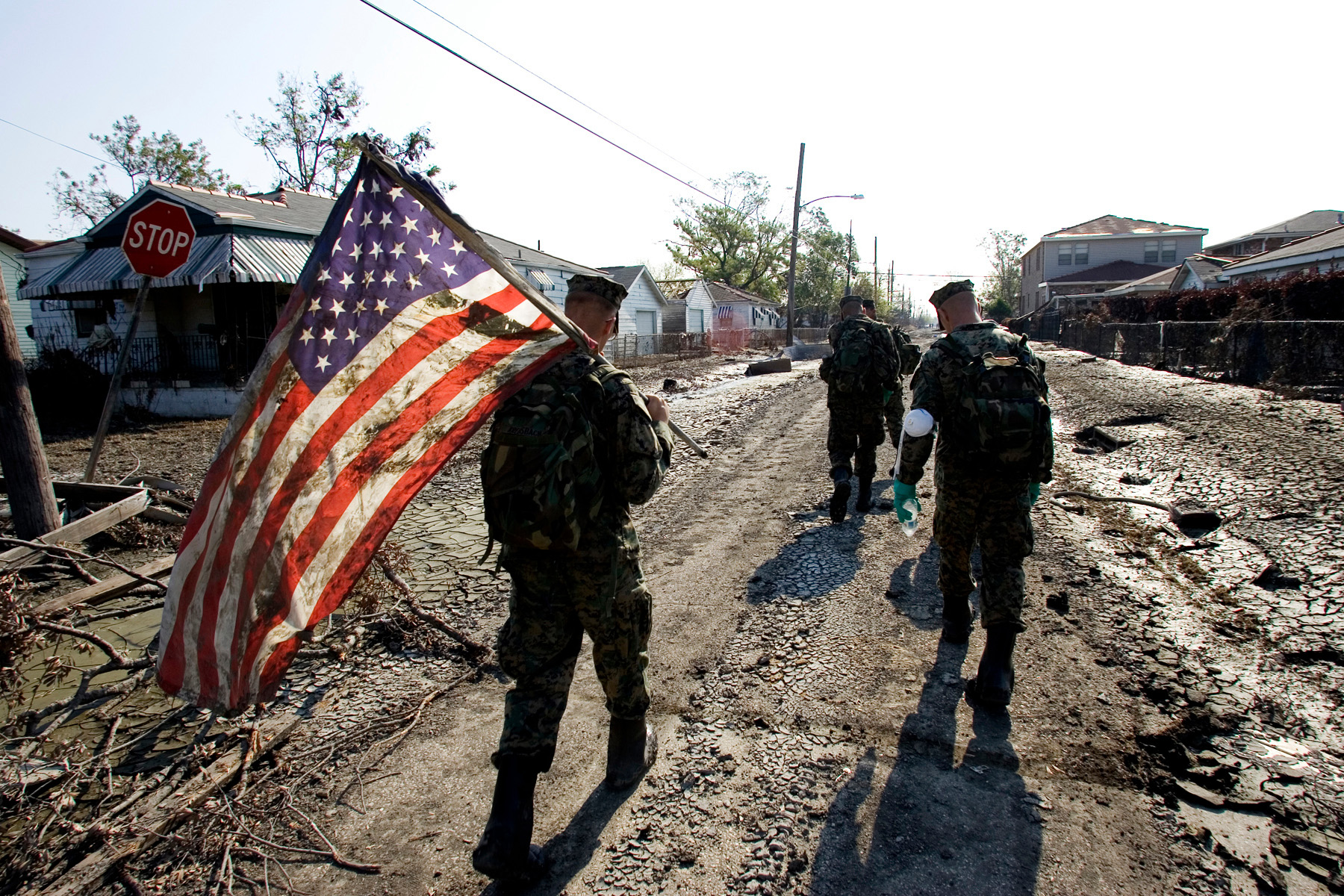A national response to the coronavirus pandemic is under way. Congress is doing its part with a disaster-relief and economic-stimulus package. Our federal response, however essential it may be, is less critical than how we respond community by community to this disaster. We are facing a great test of American collectivism.
As a Marine, I participated in the federal response to Hurricane Katrina and witnessed firsthand the importance of strong communities, the limits of a federal response and the consequences when a community falters. Three days after the hurricane, I arrived in New Orleans leading a platoon of 70 Marines. Our platoon was sent to a suburb to augment recovery efforts.
The mayor said the most essential service we could provide would be to help first responders take care of their own homes and families. Each day, the people on his list would come to the warehouse where we were staying and take a few Marines with them to help. What soon became obvious was the people on this list were not those most in need. Marines on the work sites were sledgehammering out drywall, tidying up front yards and, in one case, cleaning someone’s swimming pool. The list the mayor handed us did contain some first responders, but his definition of first responder also included many of his political friends and allies.
After a week, we tore up that list. We relied on others in the community to guide us to where our help was required. In one instance, a gas-station attendant directed us to an elderly couple. A tree had fallen through the roof of their home. With nowhere else to go, they were still living in the house, even among the continuing rains. To remove the tree, we’d need chain saws to cut it into manageable pieces. No surprise, chain saws weren’t something the federal government typically issued to Marines. So we drove to the nearest Lowe’s. After we explained the situation to the store manager, who regarded us with a frown, he relented and lent us four chain saws as well as a couple of extra ladders. He simply asked that we bring them back “not too broken,” as I recall. By that night, we had cut out the tree and slung a tarp over the hole in the roof, but only after destroying one of the chain saws. When I brought it back to the store, the manager was good-natured about it, but he handed me an invoice for a few hundred dollars: “See what you can do.”
We wound up spending just over a month in New Orleans. My experiences there demonstrated how a community could falter but also how it could come together. It taught me about the nature of American collectivism, which is different from the centralized collectivism of other societies, like China or Singapore. When we submit our individual selves to the collective as Americans, we do so largely of our own free will, and because our submission is made freely, this country has through its history been able to at times act with an unmatched collective will. It’s the same will that allowed us to overthrow the greatest empire on earth at our founding, to weather two world wars, to place a person on the moon and to lead the information revolution.
We’re facing another test of that collective will now. We have only one another to rely on. Call me sentimental but I believe in the general goodness of people, particularly the American people, and I believe that that goodness will pull us through. These days, I’ve often thought of getting back from Katrina and coming into my Camp Lejeune office and seeing an envelope sitting on my desk. The guys in the platoon had taken up a collection. They knew the Marine Corps bureaucracy wouldn’t foot the bill and so decided that we would. Inside was just enough to make the manager at Lowe’s whole.
- The 100 Most Influential People of 2024
- Coco Gauff Is Playing for Herself Now
- Scenes From Pro-Palestinian Encampments Across U.S. Universities
- 6 Compliments That Land Every Time
- If You're Dating Right Now, You're Brave: Column
- The AI That Could Heal a Divided Internet
- Fallout Is a Brilliant Model for the Future of Video Game Adaptations
- Want Weekly Recs on What to Watch, Read, and More? Sign Up for Worth Your Time
